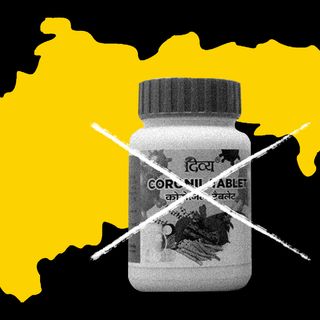What It’s Like to Live With explores the stories of people who see and experience every day a little differently.
I was going through a bunch of things. I found myself on this crazy rollercoaster, where I realized something was up, but I couldn’t pinpoint what it was. I was really depressed, and I used to wake up thinking, ‘What’s the point of living when everyone’s going to die anyway?’ It seemed like a perfectly rational question to me, and I didn’t know how to logically argue with it. I would cry in the shower every day. It was emotionally debilitating.
There was also a lot of random ringing in my ears. I had started struggling to form sentences — I would forget words. I couldn’t process things quickly; there was this mental fog. I was a management consultant, and my job really required me to think on my feet, but I felt everything was slowing me down.
I also started experiencing random vertigo, and I didn’t know what vertigo even was at the time. I remember leaving a movie theatre, and I had to come down a set of stairs, and I just couldn’t do it. I was not able to negotiate the descent.
Now, when I’m describing it in hindsight, it sounds like a list of symptoms, which can lead to a diagnosis when read together. But when all of this was happening, there was no chronological order, everything seemed random. So, I wasn’t really able to group them together, or connect them.
And somewhere, you’re conditioned to think that you’re supposed to go see a doctor for physical issues — but mental issues, you should just deal with yourself. You think you can just snap out of it. So until physical symptoms started appearing, I didn’t go see a doctor. I was suddenly losing a lot of hair. I started getting these blotches of dry skin. I put on some weight — that’s what prompted me to see someone about it.
Related on The Swaddle:
All You Need to Know About Hypothyroidism
Initially, the doctors attributed most of the symptoms to depression. But I was asked to get a thyroid test as well to check if there was an imbalance in the thyroid hormones. The results showed that my TSH (Thyroid-Stimulating Hormone) levels were elevated, but in the ‘grey zone’ — it wasn’t enough for a diagnosis, even though I seemed to have the clinical symptoms. So, they tried to understand if depression could still be at the root of it.
They would ask me if something had changed, or if I had gone through any particularly stressful situation recently. And I would rack my brain because I wanted to answer in the affirmative so that I could get a damn diagnosis, and begin treatments to put an end to the ordeal I was going through. But there were no significant changes or triggers I’d experienced — work was stressful, yes, but that wasn’t new; it had always been stressful.
While the first two doctors were hesitant, and understandably so, to treat me for hypothyroidism, the third doctor I consulted decided to treat it empirically based on his clinical experience. He said he had come across patients who only had slightly elevated levels of TSH, but experienced all the symptoms of hypothyroidism. He suggested we start with a small dosage of medicine and see if it addressed my symptoms. If it did, we’d know what their source was. I chose to go ahead with it — I was at the end of the line and pretty much willing to try anything, whatever the hell it may be.
I started the medication and some of the symptoms went away really quickly. The hair fall stopped, my skin stabilized, and my mood improved. I realize now just how much I had been struggling. Now, I have a baby and it’s been crazy with the lockdown — and even though it’s probably more stressful at present, I’m coping much better now than I did then.
Now, every four to five months, I have to do a test to check how my TSH levels are. Sometimes they change, and my medication has to be adjusted accordingly. During pregnancy, for instance, the doctor had to increase my dose. It is possible that the levels can stabilize in the future, and I can come off medication — but there’s no guarantee because we don’t know what caused the imbalance in the first place.
This interview has been condensed and edited for clarity. As told to Devrupa Rakshit.




